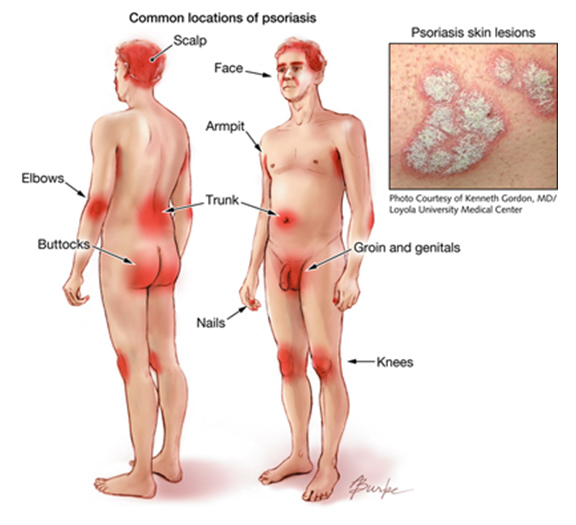Psoriasis, also termed psoriasis vulgaris), is a common, chronic, relapsing/remitting, immune-mediated skin disease characterized by red, scaly patches, papules, and plaques, which usually itch. The skin lesions seen in psoriasis may vary in severity from minor localized patches to complete body coverage. The disease affects 2–4% of the general population. The five main types of psoriasis are plaque, guttate, inverse, pustular, and erythrodermic. Plaque psoriasis, the most common form, typically manifests as red and white scaly patches on the top layer of the skin. Skin cells rapidly accumulate at these plaque sites and create a silvery-white appearance. Plaques frequently occur on the skin of the elbows and knees, but can affect any area, including the scalp, palms of hands, and soles of feet, and genitals. In contrast to eczema, psoriasis is more likely to be found on the outer side of the joint.
Psoriasis

